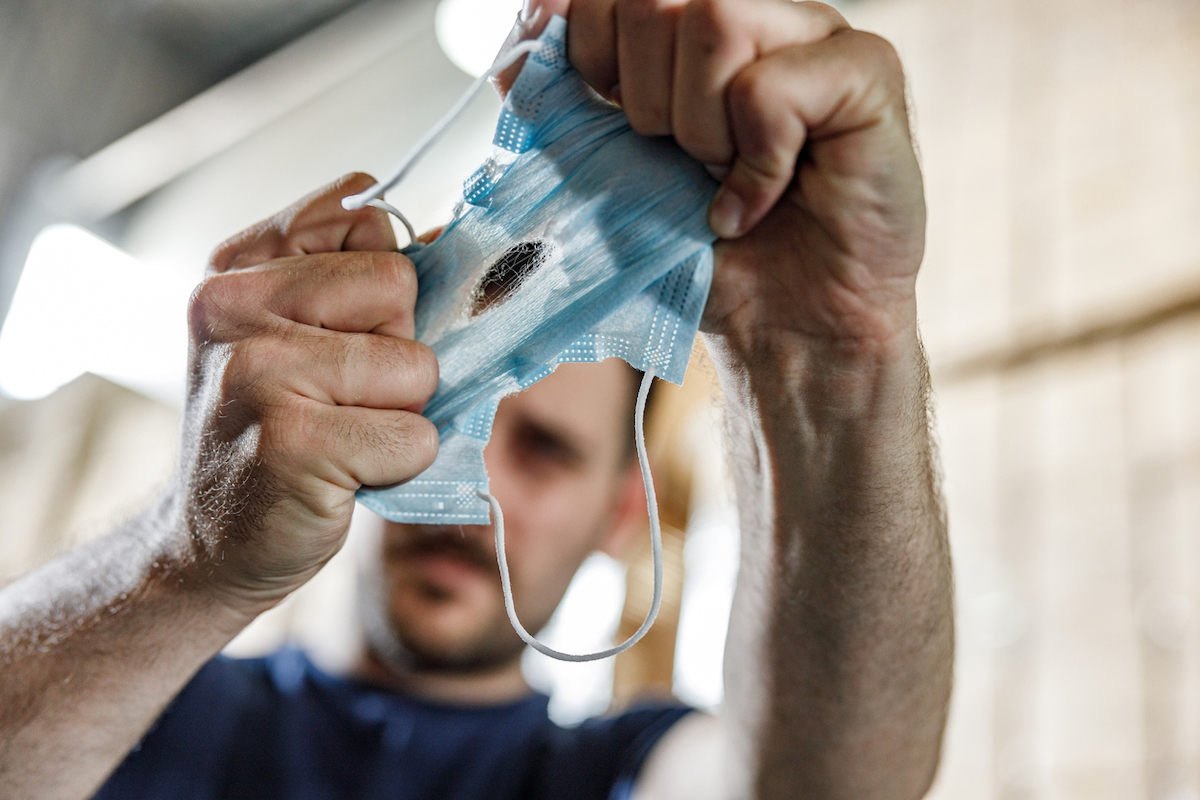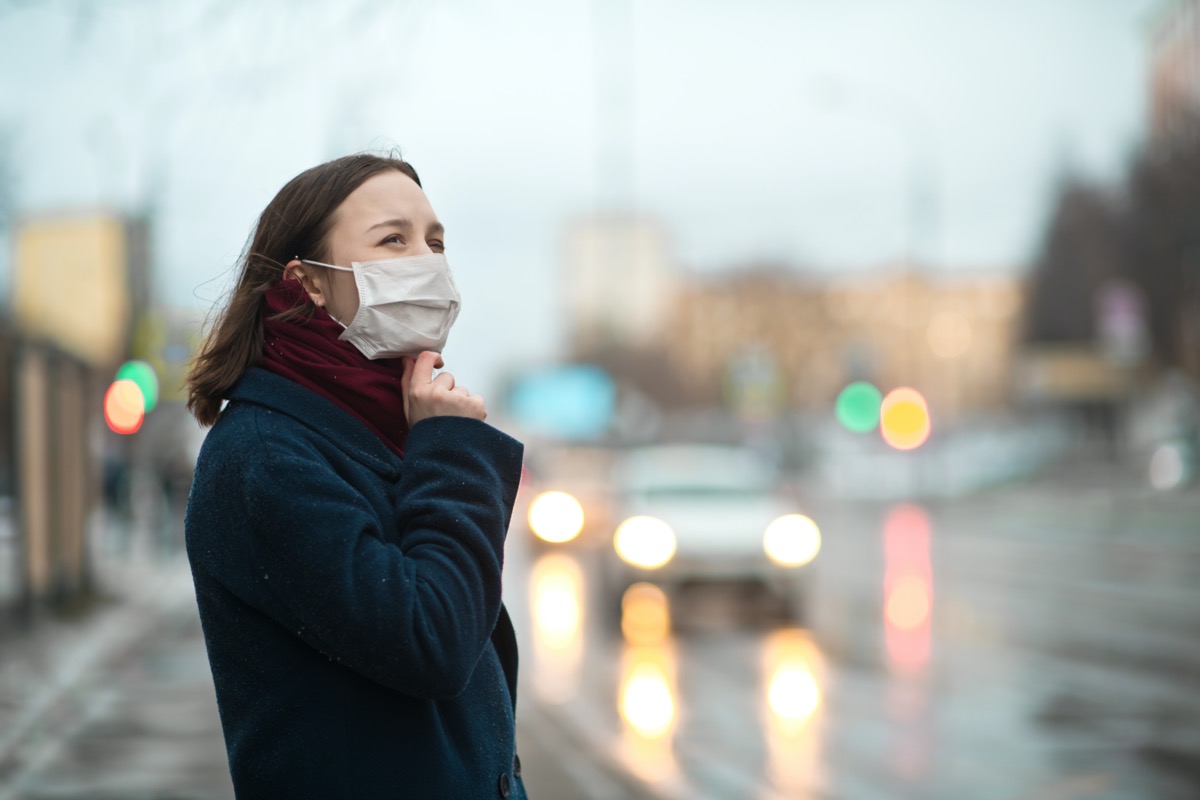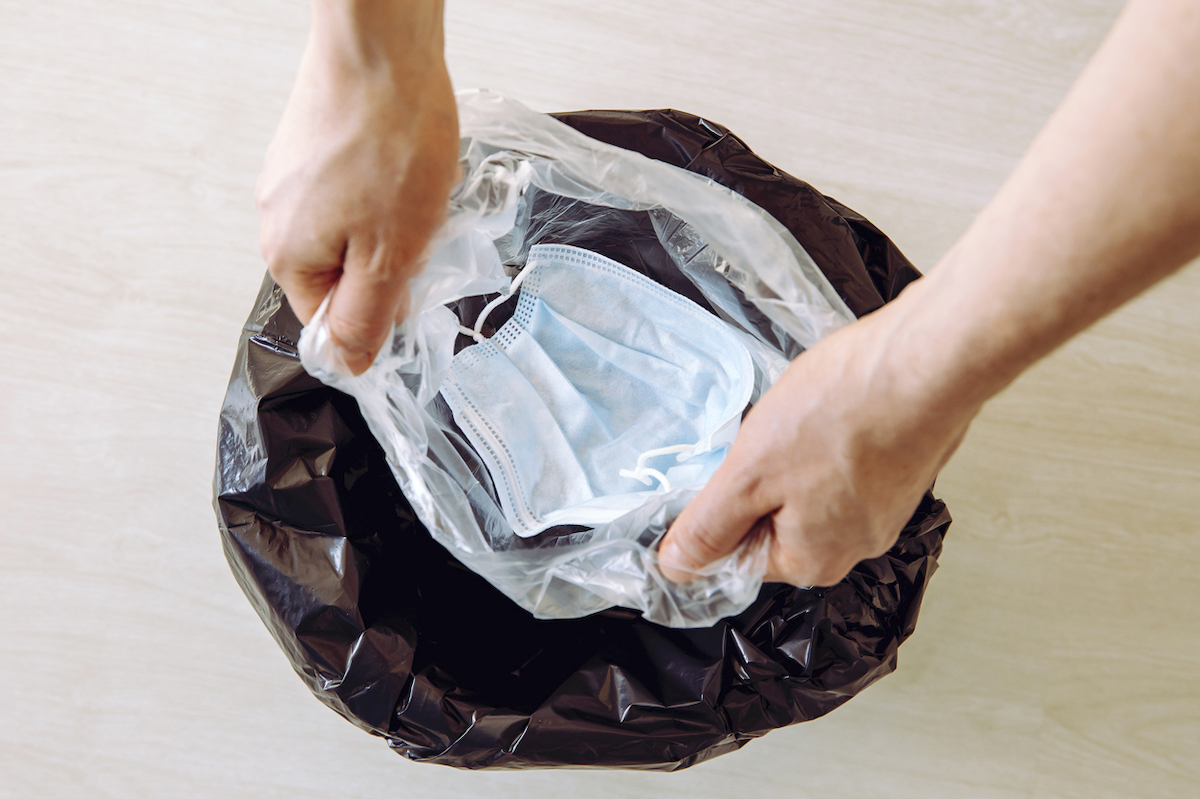All face masks only work up until a certain point, according to the FDA. And if yours has some visible wear and tear, it’s time to get a new one. Before putting on your mask, you should inspect it and discard it “if there are concerns such as degraded materials (such as elastic) or visible tears,” the FDA says. As the experts at Hackensack Meridian Health explain, damaged masks do not provide a suitable level of protection and may even lead to infection. “Any rips or tears in a mask renders it ineffective,” they write on their website, adding that you need a new mask if yours “shows signs of wear or the elastic gets broken or stretched out.” And for more coronavirus concerns, find out why This One COVID Restriction Could Last for Years, Experts Say. Certain masks, like surgical masks and N95 respirators, are “not intended to be used more than once,” according to the FDA. N95 respirators can be reused in exceptional situations through FDA-approved decontaminating systems, but only healthcare workers have access to those. So if you’ve already used your surgical mask or respirator, you should discard it and use a new one or a different type of mask. Cloth face coverings, on the other hand, can be reused. The FDA says that, in accordance with guidelines from the Centers for Disease Control and Prevention (CDC), reusable cloth face masks should still be cleaned after each use to avoid using a dirty, potentially contaminated mask. According to the Hackensack Meridian Health experts, you should “change out your mask if it becomes wet [or] soiled.” And for more up-to-date COVID news sent right to your inbox, sign up for our daily newsletter. You should also pay attention to how it feels to breathe through your mask. The FDA says that “if breathing through the mask becomes difficult” when using either a surgical mask or N95 respirator, you should discard and replace it. The CDC also recommends that you do not wear masks “made from materials that are hard to breathe through,” like plastic or leather. Leann Poston, MD, a licensed physician and health advisor for Invigor Medical, previously explained to Best Life that when a mask is hard to breathe through, the wearer “will breathe around it, which defeats the purpose of a mask,” as droplets will travel under, over, or around gaps surrounding the mask, instead of filtering through it. it And for more on the face coverings to avoid, The CDC Warns Against Using These 6 Face Masks.ae0fcc31ae342fd3a1346ebb1f342fcb If your mask becomes damaged, dirty, or is hard to breathe through, you can’t just discard it any old way. After all, you could be touching a mask that is already contaminated, which could lead to infection. Per the FDA’s advice, you should place your mask in a plastic bag and then put it in the trash. You should also always “wash your hands after handling the used mask,” according to the FDA. And for more guidance from the agency on vaccines, know that If This Happens After Your Vaccine, the FDA Says You Should Call 911.



